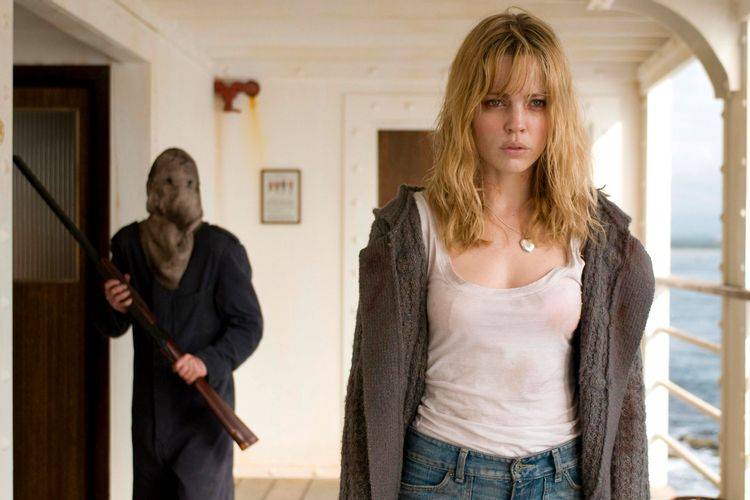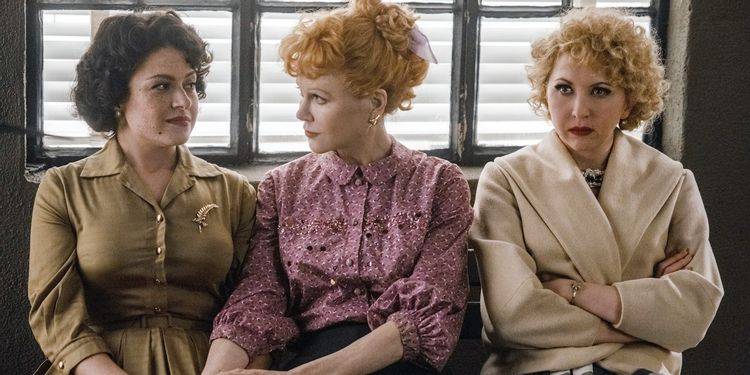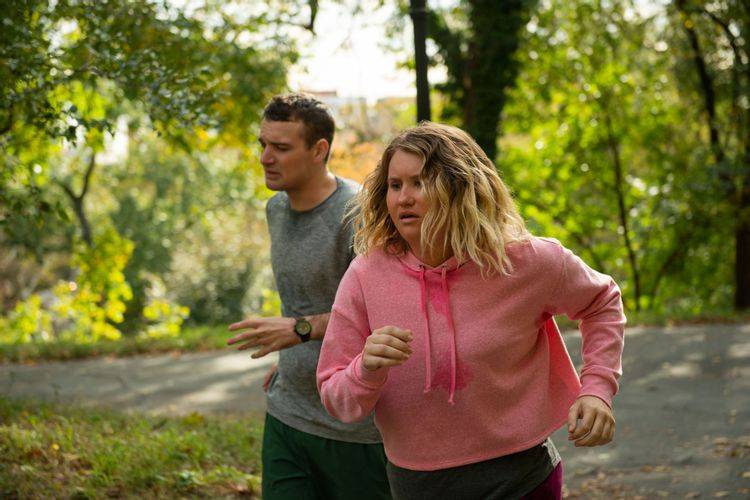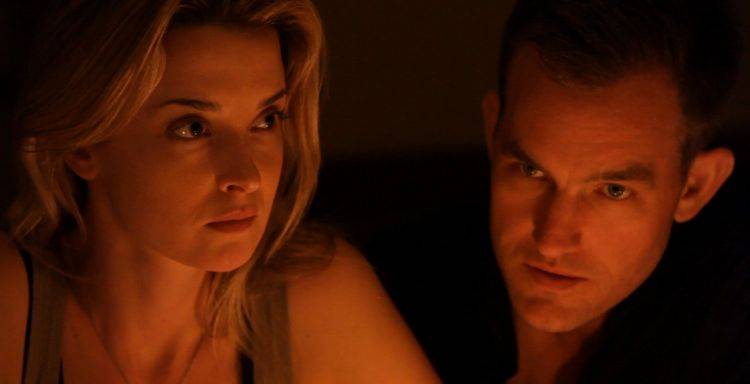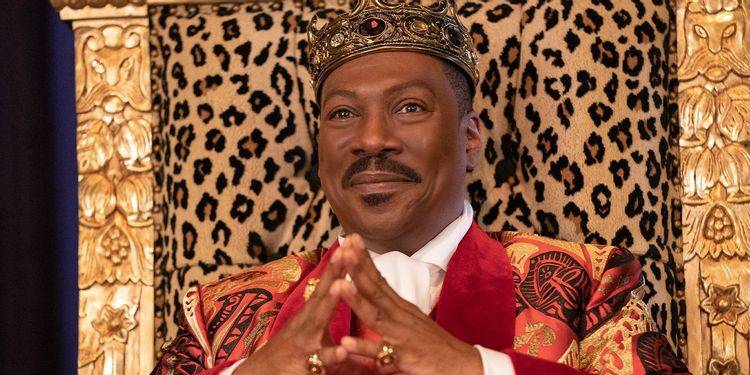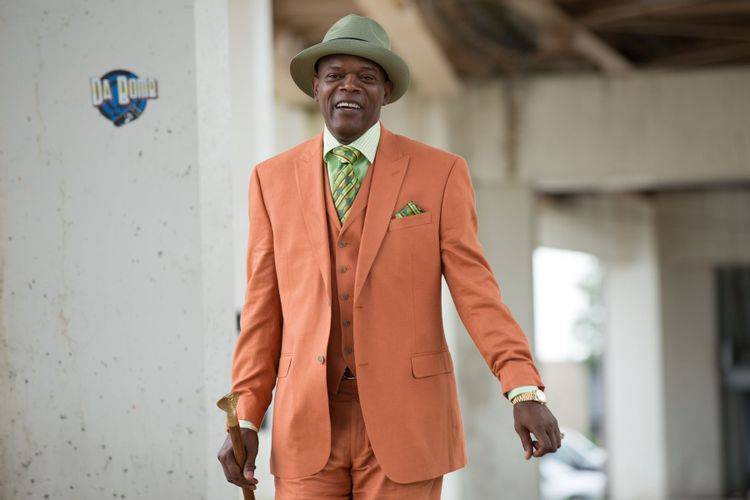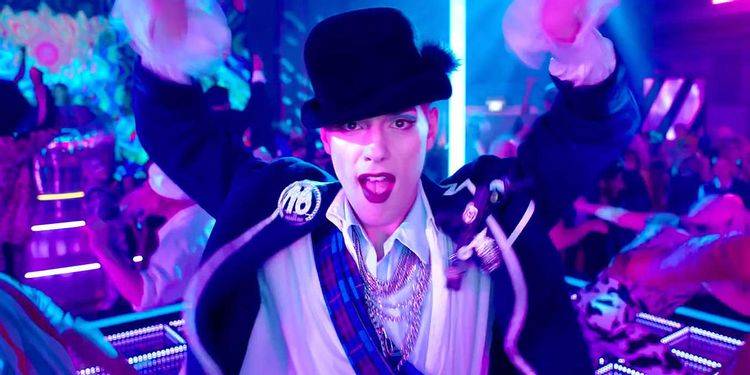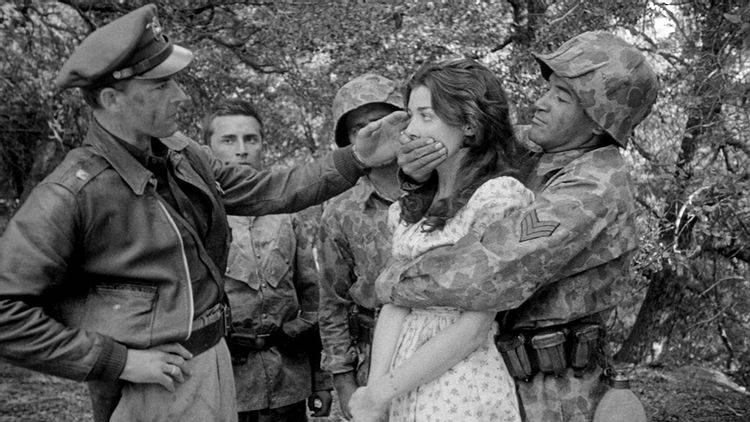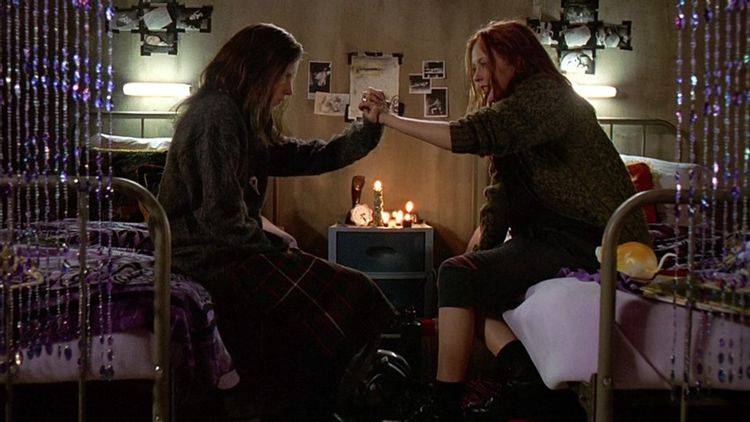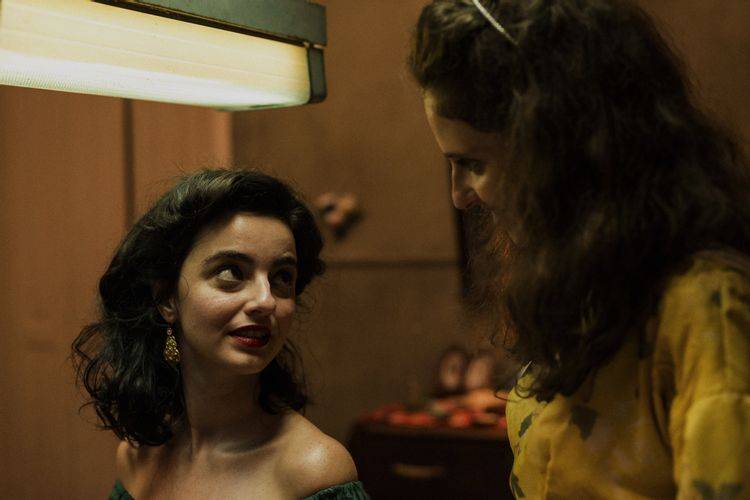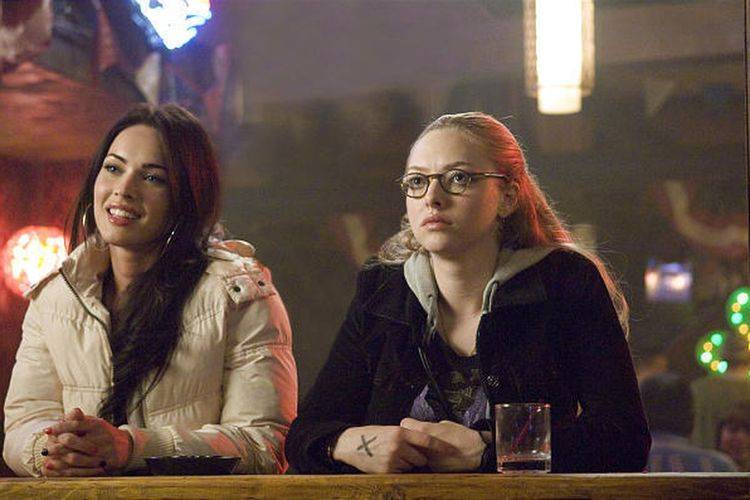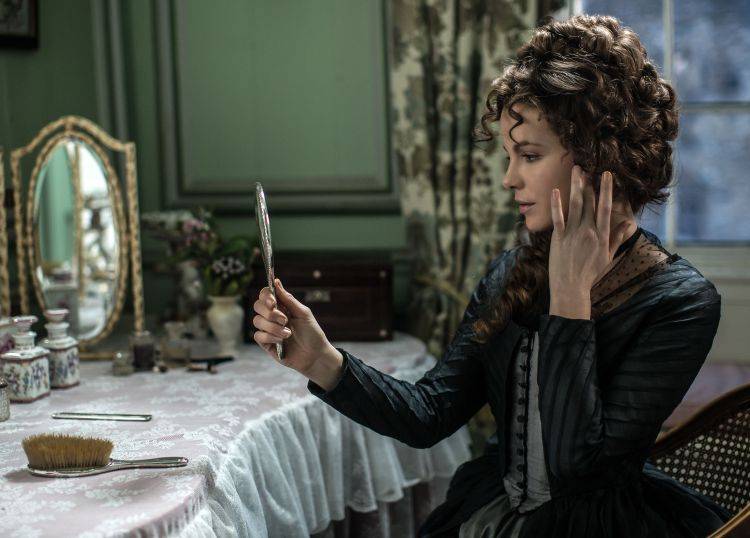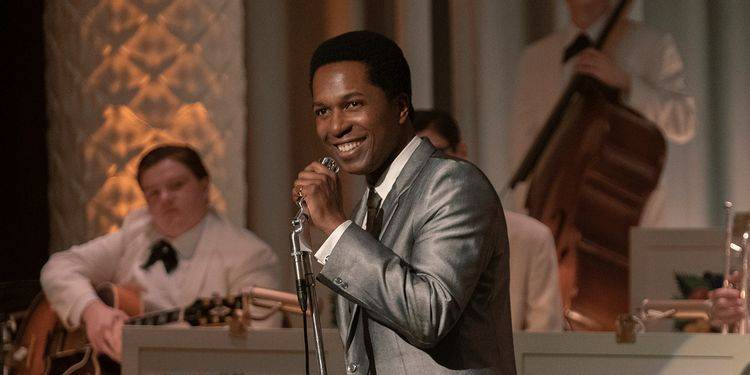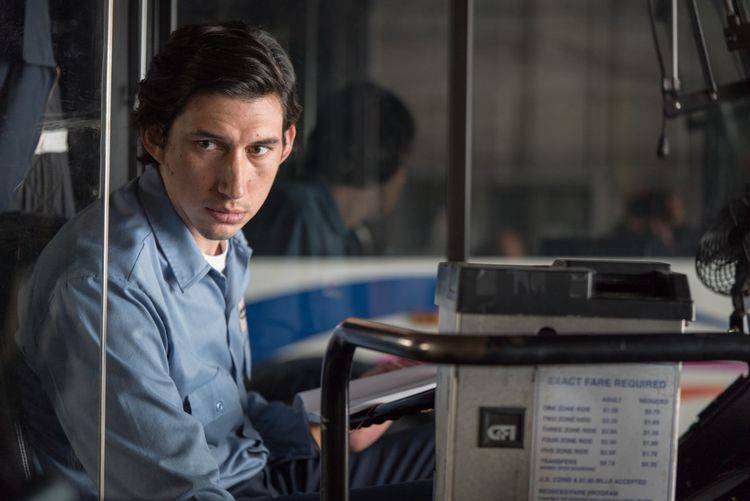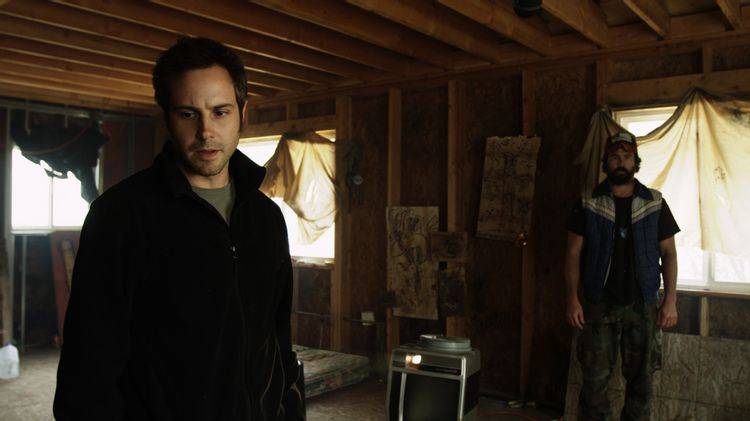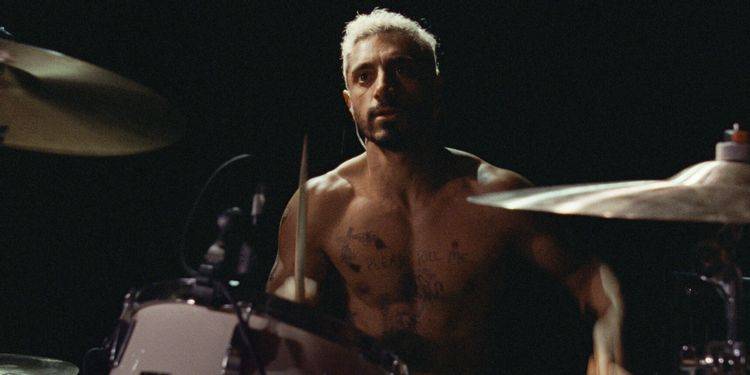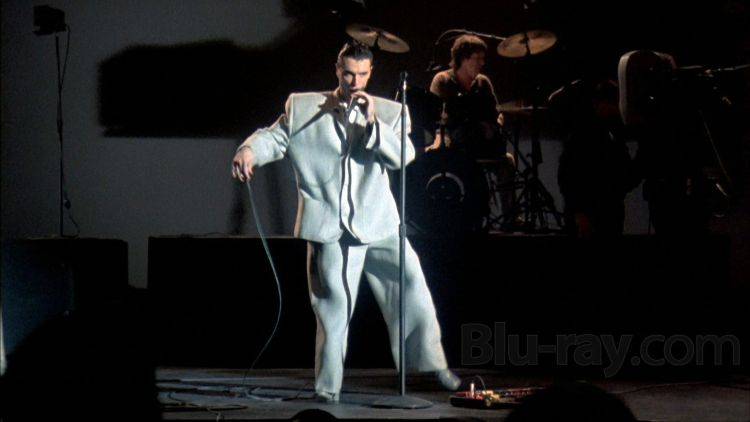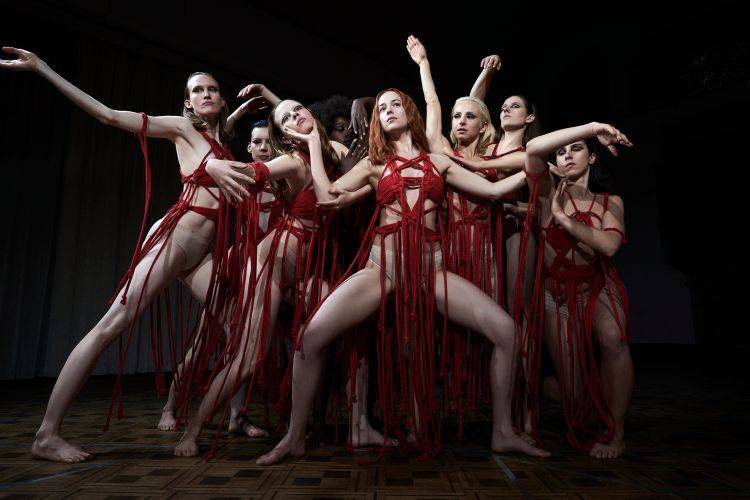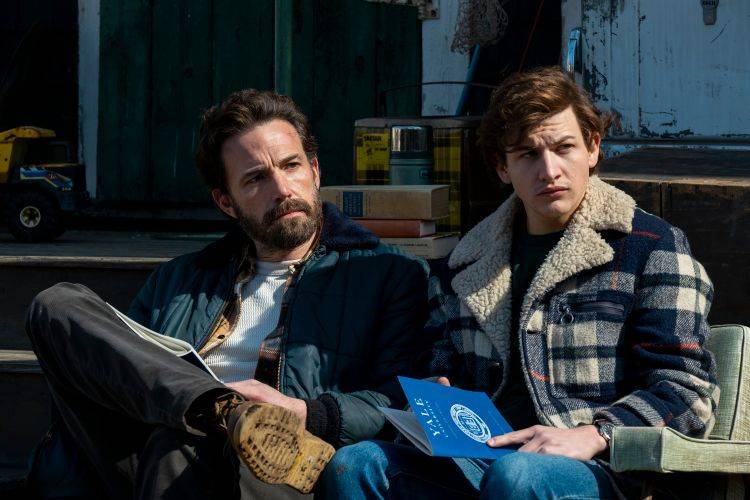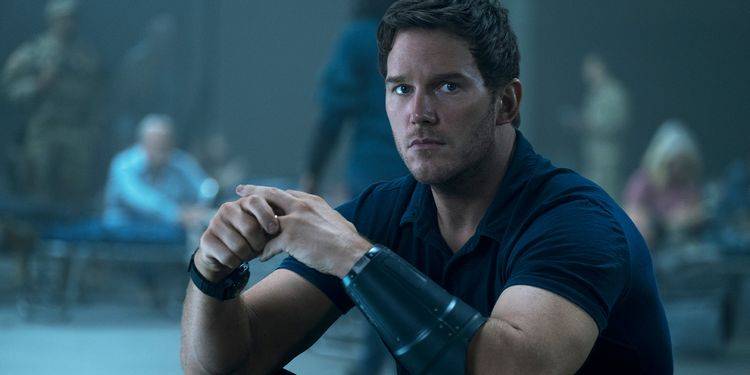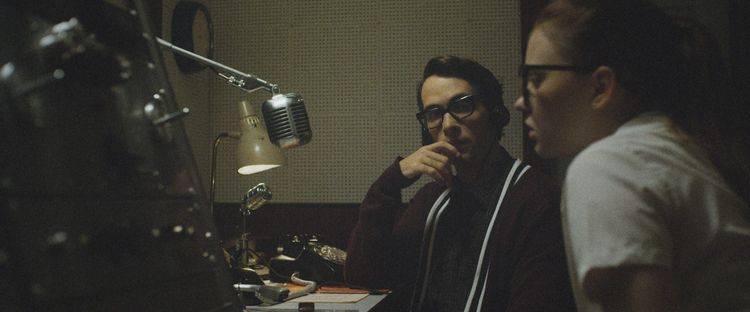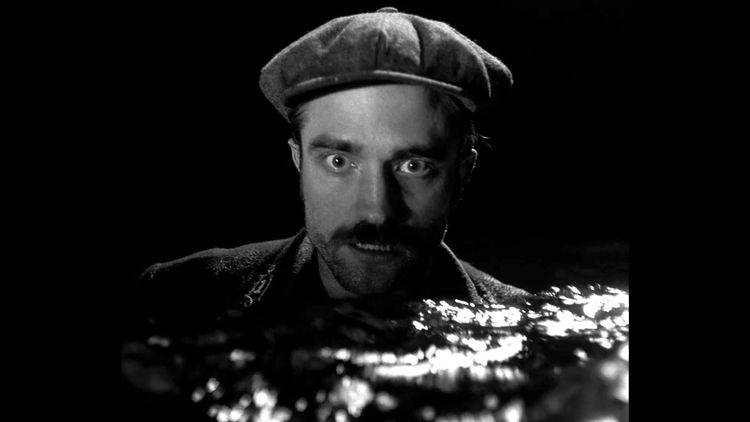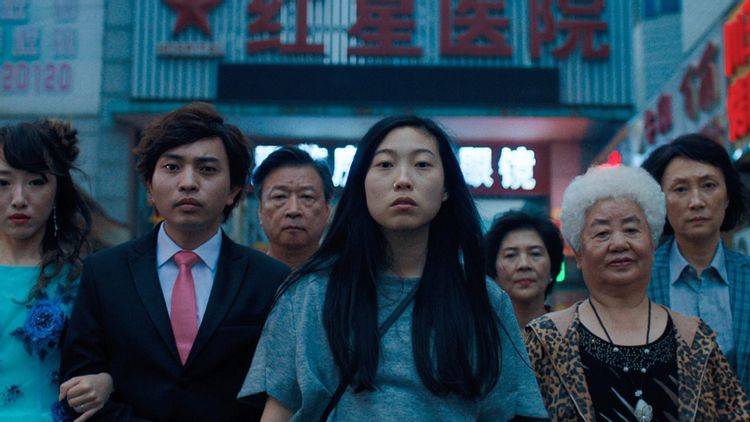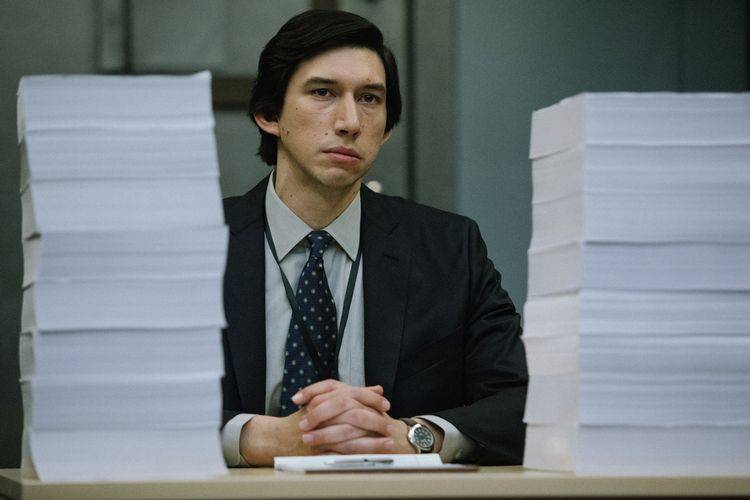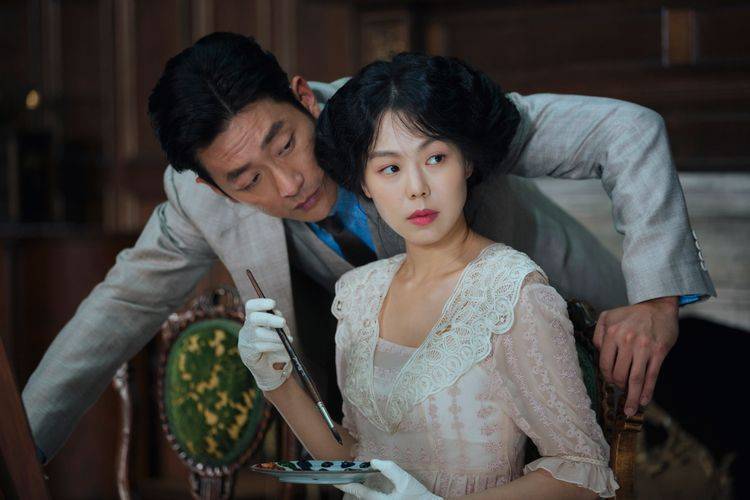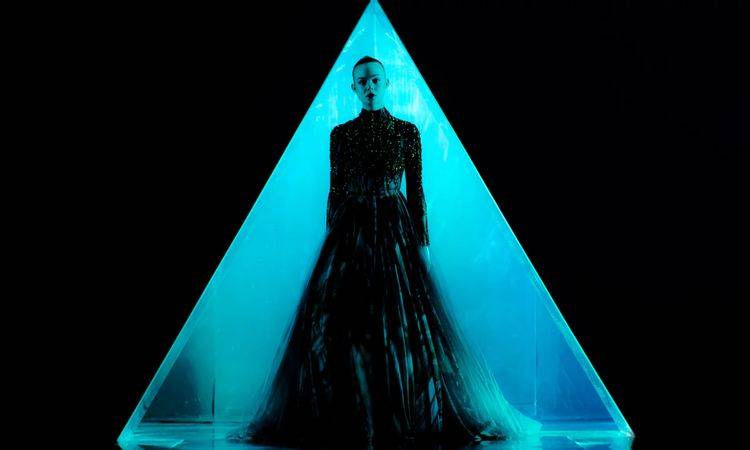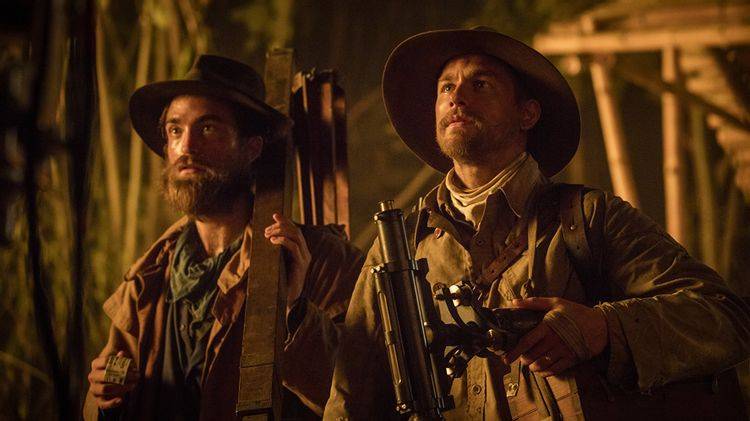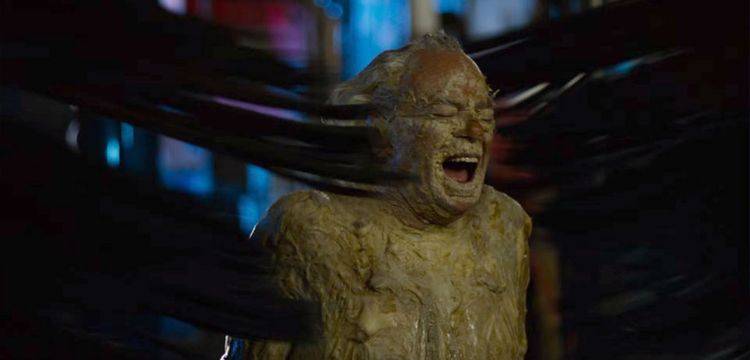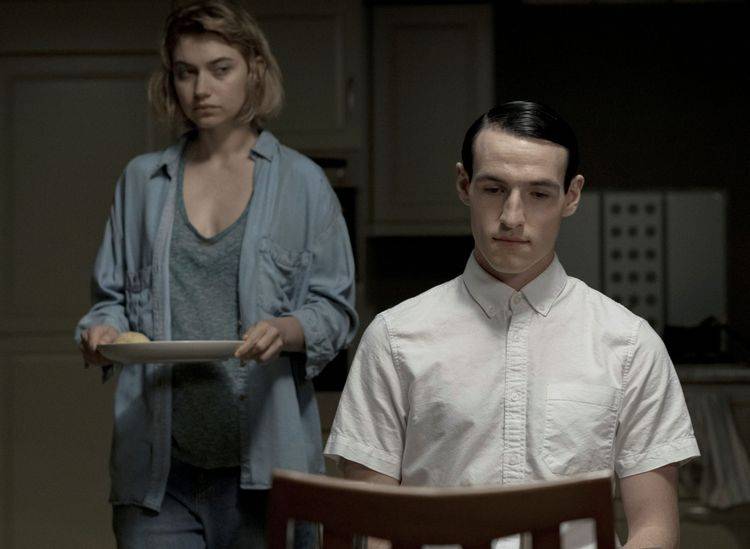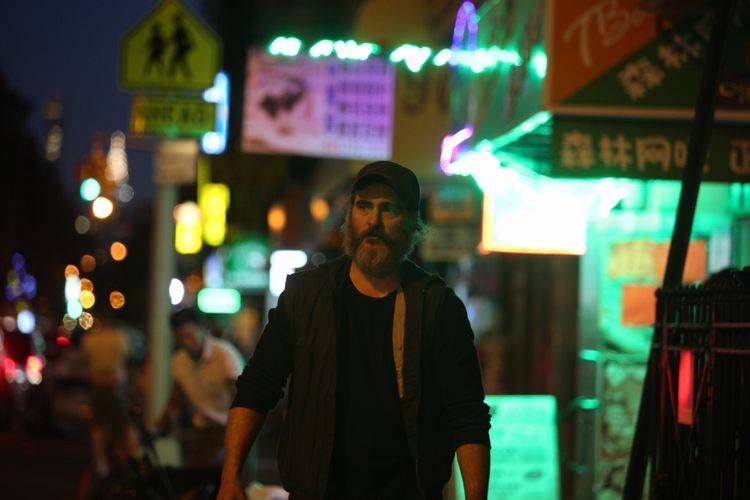Ever wondered how many hours have we all spent scrolling endlessly? You wind up perusing title after title, keen on finding just the right movie, finally unsure what to choose in the face of overwhelming alternatives, in search of a tiny payback. Don’t worry, we have already done the legwork for you, scouring the catalog for the top options for a fun night in. Now, we’ve compiled a comprehensive list of the top movies now available on Amazon Prime Video.
Furthermore, we’ll be adding new selections to the list on a regular basis, ensuring that you never run out of things to watch. There should be something for everyone on this list, which covers genres, decades, and ratings, but if you can’t find what you’re looking for (and you’re a multi-platform streamer), be sure to check out our selections for the top TV shows and movies on Netflix.
Being the Ricardos
Being the Ricardos stars Nicole Kidman and Javier Bardem as comedy superstars Lucille Ball and Desi Arnaz during the production of their sitcom classic I Love Lucy. It’s a must-see for those who want to stay up to date on this year’s awards race. The couple’s marriage is also under strain as they deal with possibly career-ending reports, are threatened with cancellation, and are racing against the clock to deliver the week’s new episode. Aaron Sorkin, creator of The West Wing and The Newsroom, explores similar fascinations with outstanding, quick-witted people under stress – in his trademark rat-a-tat dialogue-driven style, of course. I wouldn’t call it one of Sorkin’s best, but it’s a fascinating look into a little-known period in Hollywood history that’s full of great performances, and if you appreciate Sorkin’s narrative instincts in general, you’ll probably enjoy it.
Brittany Runs a Marathon (2019)
In the best possible manner, Brittany Runs a Marathon is not the film you think it is. Jillian Bell plays an overweight lady who decides to train for and run the New York marathon in the hopes of improving her health and changing her life for the better. Bell’s character learns the hard way that her problems are tied to who she is as a person, not how she appears on the outside. Changes do happen, but they’re a mix of positive and negative. With a splash of romance thrown in for good measure, it’s a surprise, heartwarming, and frequently hilarious comedy. It’s also deeply emotional, as Bell delivers a standout performance that deftly balances humorous and serious elements. Brittany Runs a Marathon isn’t just one of the year’s best comedy; it’s also one of the year’s best pictures overall.
Coherence (2014)
Coherence is a fantastic feature film debut from Gore Verbinski’s frequent storyboard artist James Ward Byrkit, and one of the most original science fiction concepts in recent memory, shot over the course of five nights with an almost all improvised script. Tensions escalate as the laws of physics and the firmaments of reality bend and shatter over the course of one mind-bending night at a dinner party reunion among old acquaintances on the night of a rare astronomical occurrence. Part sci-fi, part horror, the low-budget chamber piece succeeds not by relying on its spectacular notion, but by following that concept through with honest character arcs and the disquieting realization that nothing is scarier than our own perceptions.
ALSO READ : 35 Best Suspense Movies On Netflix That’ll Keep You Guessing
Coming 2 America (2021)
Do you enjoy visiting America? Good news, too, from the creators of Coming 2 America, a new sequel that will be available exclusively on Amazon Prime Video later this month. In a slim, but cheerful and vibrant follow-up, nearly the entire original cast reunites, led by Eddie Murphy and Arsenio Hall as Prince Akeem and his right-hand man Semmi, in a new take on the fish-out-of-water comedy that sees Akeem unite with his unexpected heir (Jermaine Fowler), while learning how to be a good king. Coming 2 America, directed by Craig Brewer, who previously worked with Murphy on the enthralling Dolemite Is My Name, isn’t quite as funny or groundbreaking as its predecessor, but it retains the original’s sweetness and spirit, even if it occasionally feels more like a tribute to the 1988 classic than a cohesive comedy in its own right. But, believe it or not, the original is worth commemorating, and Murphy and Brewer make sure you do so in style.
Chi-Raq (2016)
With its distribution of Spike Lee’s latest masterwork, which he’s created numerous of, Amazon Studios revealed itself as ready and able to bring out a truly radical and deeply political image of America, in stark contrast to most major studios and their indie leagues. Though the film’s themes are classical – race, religion, machismo, feminism, nationalism, and so on – Lee’s adaptation of Aristophanes’ “Lysistrata” in Chi-Raq is thoroughly modern in moods, aesthetics, and narrative details, from the setting in the modern hip-hop world to the use of texts and worldwide video protests. At first sight, it appears to be a jumble, but this story of a no-sex protest against gun violence in Chicago is devoid of indifference or compromise.
Everybody’s Talking About Jamie (2021)
Jamie is the talk of the town, and you should be too! The lively musical, based on an acclaimed stage performance, follows gay adolescent Jamie New (newcomer Max Harwood, an instant hit) as he pursues his ambition of becoming a drag queen in rural England. While he has a strong foundation of support in the shape of single mom Sarah Lancashire, best friend Lauren Patel, and drag queen mentor Richard E. Grant (always crucial), he also has to deal with school bully Samuel Bottomley, unsupportive teacher Sharon Horgan, and deadbeat dad Ralph Ineson. You’ll feel the sweeping waves of every emotion from despair to joy through its beautifully presented songs, many of which serve as a history of LGBT pop music, and you’ll go away motivated to find the greatest version of yourself. Put on Everybody’s Talking About Jamie right now, and put your letters to a certain other musical adolescent in the drawer.
Fear and Desire (1953)
Fear and Desire director Stanley Kubrick notoriously wanted to destroy every copy of his first picture. It’s understandable that he’d want to, given that it’s nowhere like as good as The Killing or Paths of Glory. But, thank God, the fastidious auteur and undeniably greatest director of all time was never allowed to have his way. Fear and Desire is an ordinary film with some magnificent moments, and it’s essential viewing for any cinephile who wants to witness Kubrick’s early seedlings. The plot revolves around a group of WWII soldiers who were trapped behind enemy lines and grow insane as a result of their terror of everyone on the other side and their yearning for an enemy woman.
Some of the views are incredible, such as the camera falling with a person or pushing through the leaves. Sure, it’s not quite what we’d anticipate from Kubrick, but his fear of man, woman, and violent conflict is all over this film. He is the magician, as he was once a fishy filmmaker who went on to become one of the most obsessive and influential directors of all time. He was so fascinated with perfection that one of his passions was to rid the universe of anything that wasn’t perfect. There are far worse things you could do with 62 minutes of your life. For any cinephile, this is time well spent.
Ginger Snaps (2001)
Outside of horror circles, John Fawcett’s take on the werewolf mythos should be counted among the modern monster classics, and easily one of the best werewolf films, yet it’s all too often overlooked. Ginger Snaps is a coming-of-age narrative told through lycanthropy about two death-obsessed, co-dependent sisters who are gradually pulled apart when the older girl begins to shift after a werewolf attack.
Ginger Snaps was an early adopter of the 21st-century trend of addressing female puberty through monster transformation (see also: Teeth, Wildling, Revenge, and many others), and it does so effectively, but it’s also a genuinely well-made horror picture. The effects are spot-on, the characters are relatable and sympathetic (even the cruel girl in high school, the neighborhood drug dealer, and the lusty adolescent lad) and the actors are all fully invested in their pulpy parts. Ginger Snaps cleverly twists a number of themes, including sexuality, sisterhood, loneliness, outsider pride, and the yearning to belong, and in doing so, it breathes new life into one of horror’s oldest genres.
Invisible Life (2019)
Are you looking for a lavish, opulent melodrama? Set your sights on Invisible Life, a new Amazon original that follows two close-knit sisters in 1950s Brazil who are ripped apart by life and patriarchy. Last year, Invisible Life premiered at Cannes, where film won the Un Certain Regard award and received international acclaim as a powerful and old-fashioned melodrama deeply entrenched in the Old Hollywood genre’s roots. Invisible Life is an emotionally overflowing film with stunning cinematography, ace performances, and a heart so tender you just know it’s going to break. It tackles themes of sexual liberation (and the lack thereof), feminine sexuality, and the societal pressures that pushed, pulled, and tore apart women of the era.
Jennifer’s Body (2009)
Jennifer’s Body is finally being recognized as a cult masterpiece and ahead-of-its-time horror comedy, thanks to the internet’s power (and, in all honesty, the rise of Megan Fox on social media). Which was far too lengthy for this film to receive the attention it deserved. Needy, played by Amanda Seyfried, is a shy youngster who couldn’t be more different from Jennifer (Fox), her longest BFF and the hyperconfident, hyper-gorgeous cheerleader popular girl. But “sandbox love” endures, and when Jennifer is wrongly offered up as a virgin sacrifice, she is left with a man-eating demon inside her, eventually shattering their frayed bond. Jennifer’s Body isn’t just an A-tier horror-comedy, with a whip-smart performance from Fox and an endlessly quotable script by Diablo Cody; it’s also a biting look at toxic friendships, repressed sexuality, and the way women’s bodies are treated as disposable tender in the exchanges of ambitious men.
Late Night (2019)
Late Night is likely to appeal to fans of behind-the-scenes Hollywood stories and romcoms. The story follows a young woman (Mindy Kaling) who joins the all-male writing crew of a once-famous but now-declining late-night show (Emma Thompson). As they strive to turn the show around despite numerous impediments, the optimistic young writer confronts the host and her staff’s pessimism head-on. It’s lovely, lighthearted, and humorous, but it also gets very heartbreaking as the story progresses. Kaling is lovely as the naive comedic newcomer who idolizes her boss, and Thompson gives a fantastic performance as a sophisticated and powerful lady.
Love and Friendship (2016)
Whit Stillman’s witty comedy career has included a few jabs at East Coast private school privilege (from Metropolitan through Damsels in Distress). As a result, he’s the ideal candidate for a comedy class navigation of America’s colonists. Jane Austen, one of Britain’s cheekiest and most rebellious dramatic writers, fits him like a glove. Lady Susan (Kate Beckinsale), a character from Jane Austen’s novel, is our tour guide around several of the estates of the 18th century. Lady Susan is a widow with no possessions, but she intends to maintain her status and continue to rise in society. She asks to stay with her suspicious sister-in-law (Emma Greenwell). From there, she constructs a chessboard that includes a new-money suitor (Tom Bennett) for her daughter (Morfydd Clark), an American confidante (Chloe Sevigny) who will cover for her when she meets up with a married man (in exchange for gossip, of course), and an attempt to win over her former brother-in-law (Xavier Samuel) to keep her in the family’s good graces (and guest room).
In Love and Friendship, there are a lot of characters, and Stillman uses posed photos to help us keep track of them. The first third of the movie is spent setting up all of the characters, but once they’re all in place, it’s a lot of fun. Bennett is hilarious as the oaf with a gold heart who is new to gold and thus the type of discussion that old money wants to hear in their quarters. And Beckinsale keeps the audience at a safe distance since she’s always putting on a new offense and has no sense of self, save from accomplishing her status goal. Susan’s manipulation of her status (and them) might be impenetrable in another film, but Stillman’s supporting ensemble is so entertaining that it makes Susan’s manipulation of her status (and them) funny and amusing.
One Night in Miami (2020)
One Night in Miami marks Regina King’s directorial debut, an understated historical drama set during a meeting of extraordinary minds in a quiet Florida hotel room between Malcolm X (Kingsley Ben-Adir), Muhammad Ali (then Cassius Clay, Eli Goree), Sam Cooke (Leslie Odom Jr.), and Jim Brown (Aldis Hodge). Based on Kemp Powers’ play of the same name, King’s film is a celebration of the young black men who created a niche in all aspects of public life during the civil rights movement and an academic examination of their different techniques of action. The performances are outstanding, particularly those of Ben-Adir and Odom, whose opposing perspectives on their common ideas provide the film’s most emotional dramatic heights. And King, who knows a thing or two about terrific performances, simply directs the entire thing.
Paterson (2016)
The 2016 film by Jim Jarmusch is deceptively basic. For one week, Paterson follows a bus driver (Adam Driver) in Paterson, New Jersey. We follow him as he eavesdrops on passengers, buys a harlequin guitar for his lover (Golshifteh Farahani), walks his bulldog to the local pub, and writes poems at the start and middle of his shift. Of course, other things happen, but Paterson is strong in its modesty and warm in the way it slows everything down to recite Paterson’s unfinished literary works.
Paterson is able to depict the very arduous effort of an artist’s cognitive process as everything becomes motionless and extended as he writes his thoughts on a pad of paper, thanks to a great synergy from a contemplative drone and Driver’s serene demeanor. It may not seem exciting, but it’s a warm cup of tea, and Jarmusch is dipping the tea bag in the cup while stirring in the tea. As a portrayal of a relationship between two would-be great artists—he who sticks to a regular regimen and she who alters her artistic endeavor on a whim—Jarmusch does not take the position that one is better than the other, only that doing is the best. The end effect is extremely beautiful and accurate.
Resolution (2013)
Resolution is a slow-burning, surprisingly expansive existential thriller that conjures a complete universe from the confines of an isolated cabin, directed by Justin Benson and Aaron Moorhead, who also directed Spring and The Endless. Petter Cilella and Vinny Curran play as two old friends who come to the cabin for a get-away — but one has no idea that the other is planning to keep them there by whatever means necessary until he destroys his friend’s drug habit. Benson’s script builds a Lovecraftian nightmare from that character drama when an unknown, unseen power begins giving them messages and toying with them, further confining them in their dismal little pit of sorrow. It’s a long build that culminates in an unforgettable ending, and it’s rich in mythology to the point where Benson and Moorhead have created an entire cinematic universe out of it. In fact, once you’ve finished Resolution, you may watch the semi-sequel The Endless on Netflix.
Sound of Metal (2020)
Sound of Metal isn’t to be overlooked; the moving new drama could be Amazon’s best original film of the year. The film, which stars Riz Ahmed as a metal drummer who rapidly loses his hearing and must relearn how to live his life, premiered at the Toronto International Film Festival in 2019 and was set for a summer release until the pandemic flipped the film business upside down. The film’s release on Amazon feels a lot quieter than it should, because it’s a beautiful and amazingly well-acted drama about empathy and rebirth, with another outstanding performance by Ahmed. Olivia Cooke, who plays his fiancée and bandmate, is a perfect fit for him, as is Paul Raci, who plays a man who runs a community for deaf recovering addicts in one of the year’s most memorable supporting roles. Sound of Metal is a gradual, steady, and fascinating picture of addiction, the sly and insidious prices you pay for its illusory relief, and why the much more obvious tolls you must pay to reclaim your life are worth it. And it’s a beautiful example of human grace, reminding us that just when new circumstances can change the texture of our lives forever, that doesn’t mean those lives can’t be beautiful.
Stop Making Sense (1984)
Concert films are a rare breed of art, with only a few great masterworks to their credit. The Last Waltz and The Other Side of the Mirror are two notable additions to the pantheon, but Jonathan Demme’s mesmerizing Stop Making Sense, which captures a series of gigs performed by David Byrne’s Talking Heads in the 1980s, comfortably takes the top spot. The film is as much about Byrne and his band’s physical, varied stage performances, which include props and custom stage design, as it is about Demme’s astute knowledge of camera placement, framing, and editing, which transform three concerts into one impactful work of staggeringly inventive performance art. Stop Making Sense catches one of the great art-rock acts of the 1980s in their heyday, growing recorded versions of “This Must Be the Place (Nave Medley),” “Take Me to the River,” and “Making Flippy Floppy” into enormous, anthemic broadcasts from a country on the verge of absolute anarchy.
Suspiria (2018)
Luca Guadagnino, the director of Call Me By Your Name, delivers all of his sensuality and craftsmanship to 2018’s Suspiria. Suspiria depicts its tremendous magical darkness via the context of generational strife and fascist powerplay, embedding the supernatural in the psychological to extraordinary results. It’s more of a sibling film to Dario Argento’s renowned horror masterpiece than an outright remake. Suspiria is a phantasmagoria of violence, magic, and movement that feels like it’s been ripped from the pages of some forgotten ritual. In Guadagnino’s coven, art, dance, horror, and the human spirit all come out to play, conjuring the strange and a sense of true witchcraft that is as stirring and profound as it is occasionally horrifying. Give yourself over to the dancing, for Guadagnino’s film won’t let you down.
Triangle (2009)
Following his 2006 film Severance, which put a charmingly sarcastic take on the backwoods slasher genre, writer-director Christopher Smith became even more imaginative with his following picture, the time loop mind-bender Triangle. Triangle follows a group of friends on a yachting vacation through the Bermuda Triangle, where they escape to a passing ocean liner in the midst of a horrible storm, and is centered on Melissa George’s Jess, a lady with an undiscovered source of anguish underneath her surface-level calm. When they board, they discover the massive ship has been abandoned, and they’re being pursued by a hooded deadly figure who looks to be the only other person on board.
Triangle is tough to discuss without giving away many of its creative twists and turns, but a brutal time loop continuously thrusts the gang into the nightmare scenario where Jess emerges at the center of a mystery that may just hold the answer to their escape. Smith makes the most of his twisting premise with a carefully crafted narrative of overlapping times, as well as a lot of dramatic and inventive images that depict the agony of being trapped in an endless time loop.
The Big Sick (2017)
The real-life love story of Kumail Nanjiani and Emily Gordon is the basis for The Big Sick, the most entertaining romantic comedy in years. The film stars Kumail Nanjiani as himself and Zoe Kazan as Emily in a strange-than-fiction narrative of two individuals falling in love despite competing cultures, familial expectations, and a mysterious life-threatening illness, directed by Michael Showalter from a writing by Nanjiani and Gordon. The plot revolves around a standup comedian (Nanjiani) who falls in love with a woman who heckles him (Kazan) at a show. He tries to keep the relationship hidden from his parents, who expect a strictly traditional arranged marriage to a Muslim woman, but when she falls into an inexplicable coma and he bonds with her parents (who you can’t help but fall in love with thanks to Ray Romano and Holly Hunter’s performances), their romance faces an even greater hurdle. The Big Sick is a hilarious and engaging exploration of love, devotion, and family, and it’s a true crowd-pleaser to boot.
The Tender Bar
The Tender Bar, directed by George Clooney, is a calm, intimate drama filled with great performances that keep the film afloat even as it treads horribly familiar waters. The film portrays J.R.’s (Tye Sheridan) changing relationship with the alcoholic uncle he idolizes (Ben Affleck) through childhood, adolescence, and adulthood, and is based on J. R. Moehringer’s memoir of the same name. Affleck, in particular, succeeds in this film, delivering an understated, compelling performance that unleashes his A-list appeal in full force.
The Tomorrow War
The Tomorrow War is an overloaded sci-fi story in terms of narrative ambition, but a lot of them are pretty dang entertaining concepts, at least. It all starts with a terrific hook: time-travelers from the near future arrive with news of an extraterrestrial invasion that destroys the world, enlisting humans from the present to fight the otherworldly beasts in a time-jumping army. Almost no one makes it out alive. When Dan Forester (Chris Pratt), a former Green Beret, is drafted, the audience joins him on the battlefields of Tomorrow War and beyond. It goes well beyond that.
The Tomorrow War definitely should have been a series or a series of films because it veers off in a different path every time you think you’ve reached a natural ending, but a lot of the stuff that works, truly well. The alien threat feels viscerally real and dangerous, and the time-travel hook winds up being the foundation for some solid character-building that challenges the hero archetype in a refreshingly grounded way – so if you’re looking for a sprawling, sometimes surprising sci-fi thriller, The Tomorrow War should get the job done – as long as you can forgive it for squandering the talents of the spectacular Betty G.
The Vast of Night (2020)
The independent sci-fi picture The Vast of Night is a great surprise and one of the best films of 2020. The movie follows a switchboard operator (Sierra McCormick) and a radio DJ (Jake Horowitz) as they investigate a weird sound coming through the radio during a big high school basketball game in 1950s New Mexico. That idea could go wrong in a variety of ways, but Vast of Night delights at every turn. It’s Spielbergian in the sense that it plainly takes inspiration from films like E.T. and Close Encounters of the Third Kind, but it also has its own voice and aesthetic. The highly engaging screenplay is chock-full of hilariously crackerjack banter that harkens back to screwball comedies from the 1940s and 1950s, while Andrew Patterson’s directing favors lengthy takes and distinctive shots to build suspense while the plot unfolds in real time. With a layer of Twilight Zone-style terror thrown in for good measure, The Vast of Night is a film you won’t soon forget, establishing its writers, director, and cast as up-and-coming talent.
The Lighthouse (2019)
With his debut feature, The Witch, director Robert Eggers received widespread critical praise, captivated audiences, and helped cement the A24 horror brand. So how could he top his first performance with his second? With a completely insane, terrible, and weirdly hilarious legendary tale about two men driven insane on a little island with only each other and their farts for company. The Lighthouse is a two-hander that validates Eggers as a singular voice and force of revolutionary formalist filmmaking that builds new nightmares from the technical tools of classical cinema. It stars Robert Pattinson and Willem Dafoe in stunning performances. What a delight. The Lighthouse is the pirate-talking, bean-snacking, gods and monsters isolationist nightmare of a movie nerd’s fantasies. It’s truly unique, bizarre, and ballsy as heck from all involved. After you’ve been completely perplexed, read Vinnie Mancuso’s great examination of the bizarre conclusion.
The Farewell (2019)
The Farewell, Lulu Wang’s Golden Globe and Spirit Award-winning film, may not have gotten the recognition it deserved from the Academy, but that doesn’t make it any less of a necessary, emotional movie. Wang creates a subtle and very emotional journey through the highs and lows of loving someone with all of your heart, based on her personal experiences. And then there’s the almost insurmountable task of gracefully saying goodbye when the time comes.
Awkwafina gives her best performance yet as Billi, a young Chinese-American woman who returns to China after learning that her grandmother (a genuinely remarkable Shuzhen Zhao) has terminal cancer. Her problems are exacerbated when she learns that her family plans to keep the diagnosis from her grandmother so that she can enjoy the remainder of her life in peace. The result is some of the best happy-sad filmmaking since Taika Waititi, with wonderful wit woven into the complex emotional plot and a nuanced analysis of what occurs when cultural norms collide in a crisis. And if you’ve ever had to say goodbye to someone you care about, you won’t find a more beautiful or truthful picture of the crushing weight of death than when that person is still right in front of you but you know it’s the last time.
The Report (2019)
In the tradition of All the President’s Men, The Report is a great procedural thriller. It’s the directorial debut of Contagion and Side Effects writer Scott Z. Burns, and it follows the Senate’s investigation into the CIA’s use of torture in the aftermath of the 9/11 attacks, with Adam Driver playing the staffer assigned to lead the probe at Dianne Feinstein’s request (Annette Bening). This is a tightly wound, razor-sharp, and razor-sharp thriller that doesn’t stray into the character’s personal life or a love story—as it’s compelling as it is annoying in merely following the path that lead to the writing of the title report. Driver is excellent.
The Handmaiden (2016)
The Handmaiden is the most breathtakingly beautiful erotica film ever made. Chan-wook Park liberally adapts Sarah Waters’ British melodrama for a cultural transplant to 1930s Japan-occupied Korea, where Sook-Hee (Tae-ri Kim) accepts a work as a handmaiden to the mysterious, tormented Lady Hideko (Min-hee Kim), starting a passionate love that reshapes their lives. Sook-Hee, a thief by trade and by family tradition, is working with a fake count Fujiwara (Ha Jung-woo) in a scheme to defraud Lady Hideko of her fortune, but when Sook-Hee falls for her mark, the fiendish scheme is thrown for a loop as new layers of deception and manipulation are uncovered at every turn.
The Neon Demon (2016)
Nicholas Winding Refn knows how to build a polarizing film. Refn’s Neon Demon, like Only God Forgives before it, was booed at Cannes and received mixed reviews from reviewers and audiences. That isn’t all that shocking. It’s both explicit and oblique, and it appears to be intent on making the viewer as uncomfortable as possible as much as possible. It’s also breathtakingly beautiful, but it’s up to Refn to produce a shallow film about the dangers of shallowness. Jesse, played by Elle Fanning, is a manipulative adolescent on the verge of becoming a monster. She has “that thing” that everyone wants, and she knows it. Jesse, who is rapidly rising through the ranks of the fashion industry, believes her own hype and goes full Narcissus, provoking the wrath of three seasoned industry insiders who covet her youth, natural beauty, and quick success. Along the way, things get a little out of hand.
Beautiful women bathed in blood, brilliant Technicolor visions of cannibalism and self-worship, and way too much necrophilia abound in the Neon Demon. Regardless, it’s a remarkable visual achievement, and it never sacrifices character for shock, instead entangling both in each other. Although the Neon Demon doesn’t have much to say, what it does say is amazing.
The Lost City of Z (2017)
James Gray is often referred to as a retro director, but The Lost City of Z is the furthest he’s gone back in cinema’s history. Percy Fawcett (Charlie Hunnam) is an undecorated military soldier who is unable to advance owing to his “poor choice of relatives,” but who catches the attention of the world when he journeys into the Amazon in search of an ancient civilization that may predate the Western world. It spans more than two decades of Gray’s life, and he makes efficient use of that time. Z never feels rushed, and it even stops to highlight how World Conflict I—a Western war, because we aren’t all that much more advanced than the Amazonian “savages” that Fawcett is always defending against the British Empire—marks time as something as twisting and vicious as the Amazon River.
There are arrows, a study of familial bloodlines and their value to both the Western world and indigenous tribes, mist, a mumbly Robert Pattinson, and Hunnam’s enunciation of nosebleeds. It’s perfectly timed and cost-effective. The film’s vast tale puts it in the same league as David Lean’s insightful and massive biographies of greatness. But don’t be fooled into thinking it isn’t contemporary. Gray is sensitive to notions that would have been innovative not only in 1905, but throughout the history of Hollywood. It’s about a group of white guys who feel their culture and Empire are founded on a foundation of false pride. And their societal order’s pride not only looks down on the other cultures they enslave, but it also starts global wars and keeps women in service to their partner’s greatness—even if it means hiring an unqualified society man who they believe can carry his weight simply because of his elevated rank. Gray may be making films as if he were living in the 1970s, but he’s also making them great—for today—by focusing on the meaning beneath the spectacular adventure.
The Greasy Strangler (2016)
The Greasy Strangler is a lot of fun, and I’m not a knucklehead. Since its Sundance premiere earlier this year, Jim Hosking’s feature film debut has elicited a lot of pearl clutching and gasps of horror, and it’s easy to see why — it’s absurd, unapologetic, and indecent by just about every conventional standard, but the beauty of The Greasy Strangler is that it doesn’t care about conventional standards at all. Forget about photoshop, narrative guidebooks, and all the other small checkboxes that must be checked when a film attempts to be a four-quadrant picture. The Greasy Strangler is Grindhouse incarnate, a late-night film spawned from the very essence of late-night cinema, guaranteed to make you cringe, chuckle, and recite one-liners you’ll never forget.
Vivarium (2020)
If you enjoy Twilight Zone-inspired limited tales of horror and existential dread, Amazon has plenty of horror movies to watch this month. Lorcan Finegan’s Vivarium is bleak and depressing, yet it’s also a great awful time. Imogen Poots and Jesse Eisenberg act as a young couple on the lookout for their first home but find themselves stuck in a bizarre suburban area with no way out. They can’t get out no matter how many streets they drive through or how many fences they jump over. Then there’s the nightmare baby. Vivarium is a great picture of the miseries of being trapped in a white-picket-fence life you never desired on the surface, but the scarier, much more effective undertone comes from the film’s acceptance of nature’s merciless indifference and the helplessness of being stuck in them.
You Were Never Really Here (2018)
It’s been seven years since Lynne Ramsay’s ground-breaking We Need to Talk About Kevin, but the wait was well worth it, since You Were Never Really Here is just as devastating, with the filmmaker’s typical eye for gorgeous shots on full show. As Joe, Joaquin Phoenix delivers a career-best performance as a towering force of taught aggression with a remarkable vein of sweetness and vulnerability running through him. Joe’s unbalanced life comes crashing down all around him as a result of his violent father and his years in the military, but when one of his cases becomes enmeshed in conspiracy, Joe’s unbalanced existence comes crashing down all around him. You Were Never Really Here isn’t going to win any accolades, but it’s unquestionably one of the best films of the year, beautifully filmed with moments of searing emotion.

